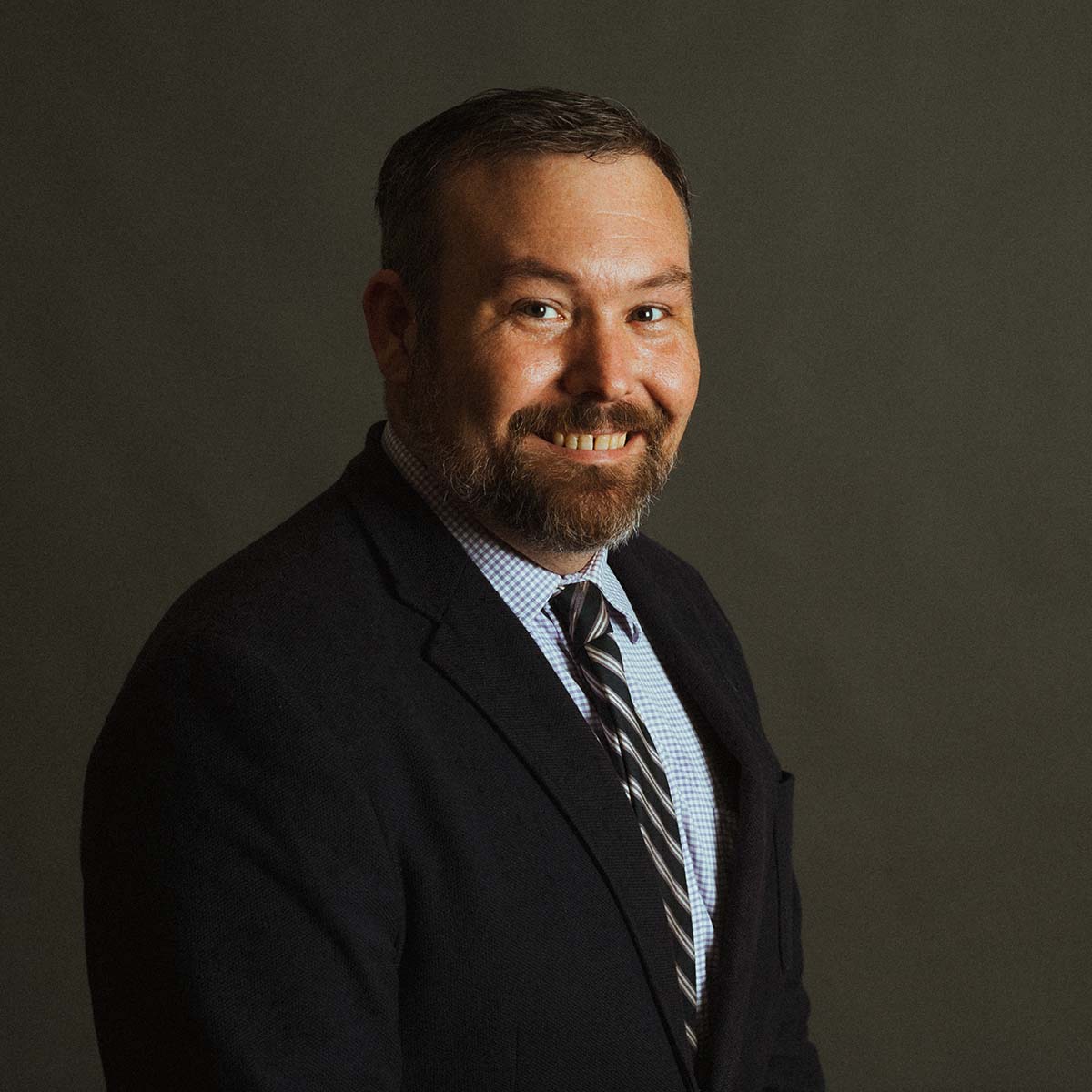
Nicholas Higgins, PhD
Department Chair, Political Science, Criminal Justice, and Legal StudiesAssociate Professor, Political Science
864.977.7767
nicholas.higgins@ngu.edu
Unit: College of Humanities and Sciences, School of Sciences and Math, Criminal Justice and Legal Studies
Location: Tigerville
"As a professor I seek to transmit a Biblical worldview about political ideas which recognizes Christ’s redemptive work as central to all points. In educating my students it necessary not only to teach them various facts, but specifically to call them to question their underlying assumptions of the nature of man, their relation to each other (i.e. justice), and their relation to God. Politics, as a structure of governing, is based upon a fundamental conception of the nature of man and the nature of the world. I seek to transmit these ideas by fostering the active learning of the students through the Socratic method; engaging students to think, analyze and debate the issues in relation to Christian principles, prudent goals, and specific policy application. I desire to convey enthusiasm and clarity in my teaching, while fostering inquiry and critical thinking in the students. I encourage them to express their thoughts through clear and concise conveyances; either written or oral. Through the formation and expression of a Biblical worldview, students are able to engage as Christian leaders in their sphere of influence, whether it be as informed citizens, their home or vocational calling, or as the political leaders of the next generation."
-
Teaching & Education
You will learn with me when taking courses in Political Philosophy and American Politics.
Degrees
- BA, Government, Patrick Henry College
- MPol, University of Dallas
- PhD, Political Science, University of North Texas
-
Professional Experience
My experience includes teaching at the collegiate level for 12 years and teaching high school before that.
-
Selected Publications
Peer Reviewed Publications:
- Higgins N. (2019) “Undermining Obligation to God: Hobbes’s Religious Rhetoric and False Forms of Obligation” Political Theology 20 (3), 224-242
- Higgins N. (2018) “Why Can’t We Be Friends: Hippothales and the Case of Plato’s Lysis” Political Science Reviewer 42:2 357-384
- Higgins N. (2017)” Bethlehemic Trilogy: Political Apology of the Davidic Kingship” Interpretation: A Journal of Political Philosophy 44:1 21-39
- Higgins N. (2016) “Hobbes’s Paradoxical Toleration: “inter regentes tolerantia, tolerans intolerantia in plebem”. Politics and Religion 9.1 139-161
- Higgins, N. (2015) “Achieving Human Perfection: Benjamin Franklin contra George Whitefield”. Journal of American Studies, 50:1 61-80.
- Higgins, N (2015) “Shame on You: The Virtuous Use of Shame in Aristotle’s Nicomachean Ethics” Expositions 9.2 1-15
- Higgins, N (2014) “Religious influences on Latino ideology and vote choice: are Evangelical Catholics different?.” Politics, Groups, and Identities 2:3 402-421.
Other Publications (Non-Peer Reviewed):
- “Locke and the Founders Agree The President can Pardon Himself” (6/13/2018) Public Discourse Journal of the Witherspoon Institute at Princeton. https://www.thepublicdiscourse.com/2018/06/21826/
- “Is it Better to Suffer Injustice than to do Injustice” (6/1/2018) Underlying Assumptions https://underlyingassumptions.org/2018/06/01/is-it-better-to-suffer-injustice-than-to-do-injustice/
- “Benjamin Franklin” Encyclopedia of the Atlantic World, 1400-1900: Europe, Africa, and the Americas in an Age of Exploration, Trade, and Empires, David Heard Ed. 2017
Book Reviews:
- “Benjamin Franklin: The Religious Life of a Founding Father” by T. Kidd. Review in Fides et Historia 51/1 Winter/Spring 2019 187-188
- “Making Religion Safe for Democracy” by J.Judd. Owen. Review in Fides et Historia, 49:1 Winter/Spring 2017 142-144.
-
Selected Awards Received
2019-2020 – Deans Award for Faculty Excellence, College of Arts and Sciences Regent University
-
My Network
I will gladly involve you in my circle that includes having connections to both the practical world of politics as well as academic pursuits. I have helped students get internships and jobs with campaigns, congressmen, and think tanks around the country. I have also helped students get into law school and Ph.D. programs.
-
My Story
I was born in the Midwest, and grew up in the South. I, with my family, just moved to South Carolina (thankfully I have family and friends in the area). While I always had a passion for politics and law, the Lord’s guidance on my vocation took several refining steps. While I first thought about becoming a lawyer, spending time working in a lawfirm convinced me that was not the best way to use my gifts. It was only after I was completing my undergraduate degree that I began to think about teaching, and with the encouragement of friends and mentors, I began to pursue additional education to be prepared to teach well at the higschool level. After a few years doing this, I felt a call to teach at the university level.
When I am not on campus, home, or at church, you will most likely find me at a nearby coffee shop reading a book. While I typically am reading political, philosophical, or theological works, I have been known to dip into classic literature or short stories (but if it is published in the last 30 years, I doubt I have read it). As a family we have raised chickens and are starting to have some goats, but for a guy raised in the suburbs, it is a difficult undertaking.Favorite Course to Teach:
Ancient Political Theory and Modern Political Theory

